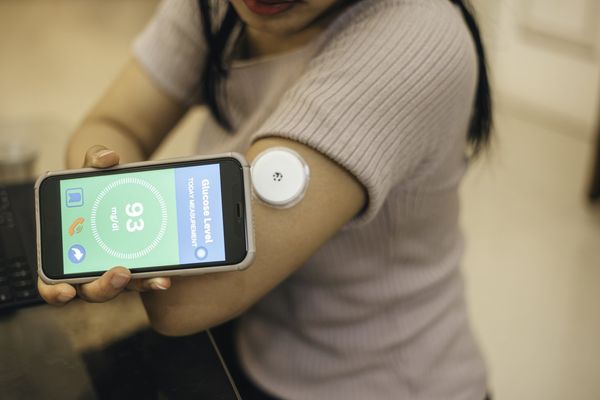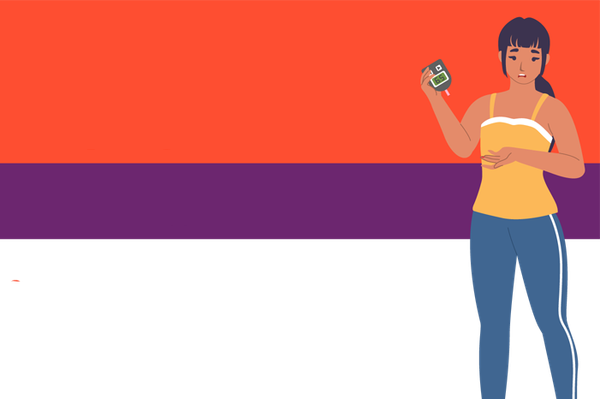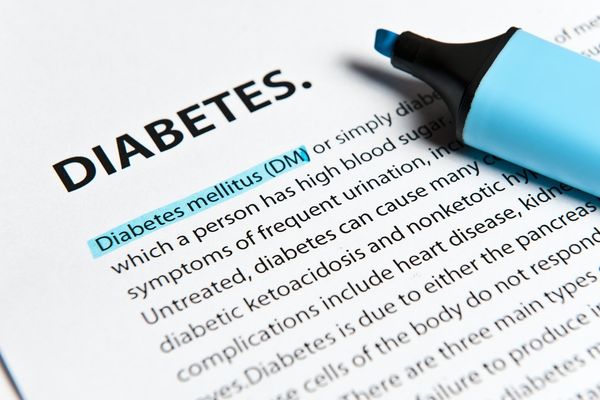Q:
I have type 2 diabetes, and I know it is important for me to lose weight, but how do I start?
A:
It all starts with a positive mindset, a can-do attitude and getting focused. Losing weight is a lifelong commitment to making lifestyle changes. Research shows that losing as little as five to 15 percent of your body weight over six months or longer can do much to improve your health. In fact, weight loss of approximately 10 percent has been shown to improve blood glucose control. For example, if you weigh 200 pounds, losing ten percent of your body weight means losing 20 pounds. Any amount of weight loss is beneficial. A safe rate of weight loss is one half to two pounds weekly.
Choose a variety of healthy foods like vegetables, fresh fruits, whole grains (wheat, oats, bran and barley), beans and low-fat meat, poultry and dairy. Eat fish two to three times per week and pick heart-healthy fats, such as olive or canola oils and nuts and seeds, rather than saturated fats such as butter, stick margarines or shortening.
Managing your weight also means you need to pay attention to how much and how often you eat. Everything today has become oversized, or what we call "portion distortion." So it is now easier to overeat because we've lost sight of what constitutes a portion. Until you visit with your registered dietitian, stick to standard portions sizes listed on the food labels.
Do not skip meals or eat so little during the day that you allow yourself to become super-hungry by nighttime. When you don't eat well-balanced meals during the day, or forgo them entirely, you'll end up so famished that you're far more likely to binge. A reliable way to keep your appetite from getting out of control is to incorporate good sources of protein into your meals. Examples include sliced turkey, chicken breast and seafood.
Some tips for helping with your weight loss efforts:
- Preplan and prepare meals and snacks ahead of time. This helps when you are too tired to cook and can keep you on track.
- Shop from a list, and shop when you are not hungry.
- Eat slowly so your brain can get the message when you've become full.
- Eat more vegetables. Cover half of your plate with greens. Take seconds of vegetables or salad instead of more meat and potatoes.
- Choose high-fiber foods, such as multi-grain breads, high-fiber cereals, fresh fruits and vegetables.
- Snack sensibly, such as raw vegetables with salsa.
- Choose smaller servings, get to know what a serving size is, weigh and measure portions if necessary.
- Cut back on carbohydrates. Studies show that individuals eat too many carbohydrates, so reducing portion size should help with weight loss and better blood glucose control. But remember that portion sizes of all foods, not just carbohydrate foods, should be controlled.
- Find support. Seek out some type of group support, such as a meeting or an online chat group.
- Keep a food diary. Writing down what you eat, when you eat, how much you eat and why you eat can help you make changes that lead to weight loss.
- Engage in some type of physical activity most days of the week. Physical activity is crucial to weight loss efforts.
Finally, work with a registered dietitian or diabetes educator to establish a meal plan, which is a guide that tells you how much and what types of food to eat at meals and snack times. Together, you can design a meal plan that's right for you and includes foods that you enjoy.







